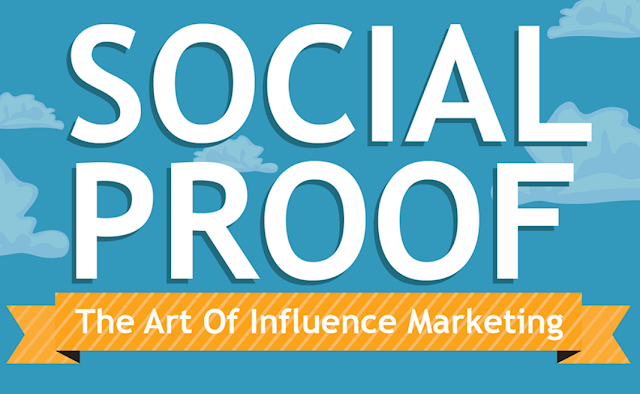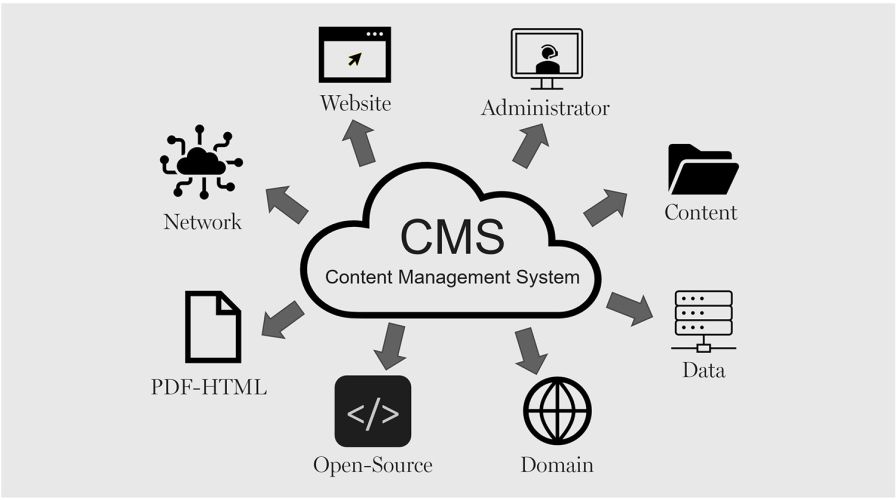Social proof is a psychological and social phenomenon where people are more likely to engage in actions that they see others performing. Known by various terms such as conformity, social norms, and herd behavior, this concept is deeply rooted in human psychology.
Renowned psychologist Robert Cialdini and his colleagues conducted a seminal study highlighting the influence of social proof. Participants were placed in a queue at a photocopier and observed the actions of those ahead of them, whether they chose to sit or stand. The study revealed a strong tendency for individuals to mimic the behavior of the person directly before them. This finding underscores the powerful impact of social proof on human behavior.
Benefits and Drawbacks of Social Proof
Advantages:
- Comfort and Adaptation: Observing others’ actions can make individuals feel more comfortable and adaptable in new environments.
- Decision-Making Aid: Social proof provides guidance in uncertain situations, helping people make informed choices.
- Motivation: Seeing others engage in certain behaviors can motivate individuals to do the same.
Disadvantages:
- Manipulation Risks: Social proof can be manipulated to influence people inappropriately.
- Loss of Individuality: It can lead to groupthink, overshadowing personal judgment.
- Unwanted Actions: Individuals might feel compelled to do things they do not genuinely want to do.
Importance of Social Proof in Marketing
In this Gen-Z world, social proof is more significant than ever. Reviews, testimonials, and social media influence play a critical role in shaping consumer behavior. Negative comments on a video, for instance, can dissuade viewers from watching, exemplifying the impact of social proof.
Entrepreneurs can harness this phenomenon to market products or brands effectively, reducing costs associated with customer acquisition. Positive customer experiences and word-of-mouth recommendations are powerful tools in attracting new clients. Types of Social Proof.
Types of Social Proof and Their Implementation in Business
Social proof is a powerful psychological phenomenon that businesses can harness to build credibility, trust, and influence customer behavior. Below are the primary types of social proof, detailed explanations of each, and how they can be effectively implemented to promote businesses.
1. Herd Instinct (Crowd Behavior)
The herd instinct refers to the tendency of people to mimic the actions of a larger group. This type of social proof leverages the idea that if many people are doing something, it must be the correct or desirable action.
Implementation:
- Showcase Popularity: Display the number of customers who have purchased or are using a product. For example, e-commerce sites often show “X people are viewing this product” or “Y sold in the last 24 hours.”
- Highlight Bestsellers: Create a section on your website for bestselling products to guide customers toward popular choices.
- Live Purchase Updates: Use widgets that show real-time purchases or sign-ups, such as “John from New York just bought this item.”
Promotion of Business:
- Increased Trust: Seeing others’ actions reassures potential customers, reducing their perceived risk.
- Encourages Action: People are more likely to make a purchase if they see that others are doing the same, creating a sense of urgency and trust in the product’s quality.
2. Testimonials (Personal Stories)
Testimonials are personal accounts or reviews from customers detailing their positive experiences with a product or service.
Implementation:
- Customer Reviews: Feature reviews and ratings prominently on product pages.
- Video Testimonials: Share video testimonials from satisfied customers, which can be more engaging and credible than text.
- Case Studies: Publish detailed case studies showing how your product or service solved specific problems for customers.
Promotion of Business:
- Builds Credibility: Personal stories resonate with potential customers, making the product or service more relatable and trustworthy.
- Influences Decisions: Positive testimonials can tip the scales in favor of a purchase by alleviating doubts and showcasing real-life benefits.
3. Expert Opinions
Expert opinions involve endorsements or positive feedback from professionals or authorities in a particular field.
Implementation:
- Endorsements: Partner with industry experts or influencers to endorse your products.
- Certifications and Awards: Display any certifications, awards, or recognitions received from reputable organizations.
- Expert Reviews: Publish reviews or articles written by experts who have tested your product.
Promotion of Business:
- Enhances Trust: Expertise adds significant weight to a product’s credibility, especially in technical or specialized markets.
- Boosts Authority: Associating with well-known experts elevates the perceived quality and reliability of your offerings.
4. Bandwagon Effect
The bandwagon effect refers to the tendency of individuals to adopt certain behaviors, styles, or attitudes simply because others are doing so.
Implementation:
- Social Media Campaigns: Run campaigns that encourage sharing and tagging, creating a viral effect.
- User-Generated Content: Encourage customers to share their own content using your product, creating a sense of community and widespread adoption.
- Influencer Marketing: Collaborate with influencers who can generate buzz and attract followers to your brand.
Promotion of Business:
- Creates Momentum: As more people join the trend, others are encouraged to follow, amplifying the effect.
- Drives Sales: Seeing a product or service widely adopted by others can drive sales as customers want to be part of the trend.
5. Customer Reviews
Customer reviews are feedback left by individuals who have purchased and used a product or service.
Implementation:
- Review Sections: Have a dedicated section for customer reviews on each product page.
- Third-Party Review Sites: Encourage satisfied customers to leave reviews on third-party sites like Yelp, Google Reviews, or Trustpilot.
- Email Follow-Ups: Send follow-up emails post-purchase, prompting customers to leave reviews.
Promotion of Business:
- Enhances Transparency: Genuine reviews, whether positive or negative, show transparency and build trust.
- Improves SEO: Reviews can improve search engine rankings, making it easier for potential customers to find your business.
- Influences Purchase Decisions: Detailed customer feedback helps potential buyers make informed decisions, increasing conversion rates.
6. Social Media Proof
Social media proof involves leveraging social media activity and interactions to build credibility and attract customers.
Implementation:
- Likes and Shares: Highlight the number of likes, shares, and comments your posts receive.
- Social Media Mentions: Display mentions of your brand by satisfied customers or influencers.
- User-Generated Content: Feature posts from users who tag your brand or use branded hashtags.
Promotion of Business:
- Increases Visibility: Active social media engagement increases your brand’s visibility and reach.
- Builds Community: Creating a community around your brand fosters loyalty and repeated interactions.
- Authentic Promotion: User-generated content and social interactions provide authentic promotion, often seen as more trustworthy than traditional advertising.
Businesses can effectively use social proof by highlighting customer testimonials and reviews on their websites. Demonstrating that trusted individuals or groups have already purchased a product can attract new customers. Artificial Intelligence AI can assist in generating appropriate responses to customer feedback, saving time and ensuring the right message is conveyed.
General Applications of Social Proof
Social proof is a versatile tool that can be leveraged across numerous domains, particularly in business and organizational contexts. Companies often showcase customer usage and satisfaction to entice potential buyers, while organizations use social proof to drive actions such as charitable donations or environmental initiatives. However, it is crucial to apply social proof ethically, avoiding its use to promote potentially harmful products or services.
How Social Proof Promotes Business
1. Building Trust and Credibility: Social proof acts as a form of validation from real users, enhancing the trustworthiness of your brand.
2. Reducing Perceived Risk: Potential customers feel reassured when they see others have had positive experiences, lowering the perceived risk of making a purchase.
3. Influencing Decision Making: When customers are uncertain, social proof provides the necessary nudge by showing that others have made similar decisions and are satisfied with the outcome.
4. Enhancing Customer Loyalty: Engaging with customers through reviews, testimonials, and social media creates a sense of community and loyalty, encouraging repeat business.
5. Driving Sales and Conversions: Effective use of social proof can directly influence purchasing behavior, increasing sales and conversion rates by leveraging the power of influence and trust.
By strategically implementing various types of social proof, businesses can significantly enhance their marketing efforts, build stronger relationships with customers, and drive long-term success.
The Importance of Social Proof
Social proof is a crucial psychological and social phenomenon with significant implications for businesses, influencing consumer behavior, building trust, and enhancing brand credibility. Here are the key reasons why social proof is essential:
- Enhances Credibility and Trust: Social proof, through reviews and endorsements, boosts a brand’s trustworthiness and credibility, reducing perceived risks associated with purchases. Example: Displaying customer testimonials on product pages.
- Influences Decision-Making: People tend to follow others, especially in uncertain situations. Social proof guides potential customers by showing that others are satisfied with their choices. Example: Highlighting the number of satisfied customers to encourage purchases.
- Reduces Perceived Risk: Online purchases can be daunting. Social proof, through positive experiences from others, reassures potential customers about product quality. Example: Featuring positive reviews prominently on an e-commerce site.
- Creates a Sense of Community: Social proof fosters a sense of belonging among customers, driving brand loyalty and repeat business. Example: Encouraging customer experiences on social media to build community.
- Amplifies Marketing Efforts: Social proof, through word-of-mouth and social media interactions, can reach a broader audience and generate more engagement than traditional advertising. Example: Leveraging influencer partnerships to enhance credibility.
- Drives Conversions and Sales: Effective social proof increases conversion rates and sales as potential customers follow others’ positive experiences. Example: Implementing live purchase updates to create urgency.
- Supports Brand Positioning: Endorsements from experts and positive media coverage elevate a brand’s status, helping differentiate it from competitors. Example: Displaying logos of reputable organizations that have endorsed the brand.
- Enhances Online Reputation: Reviews, ratings, and testimonials shape a company’s online reputation. Positive feedback boosts brand image, while managing negative reviews shows a commitment to customer satisfaction. Example: Actively responding to customer reviews on platforms like Google and Yelp.
Pros and Cons of Social Proof
Pros:
- Enhances Credibility and Trust: Positive reviews, testimonials, and endorsements build a brand’s trustworthiness, making potential customers more likely to trust the brand and its products.
- Influences Decision-Making: Social proof guides potential customers by showing that others have made similar decisions and are satisfied, encouraging new customers to follow suit.
- Reduces Perceived Risk: Seeing others’ positive experiences reduces the anxiety and uncertainty associated with purchasing, especially online, making it easier for customers to commit to buying.
- Creates a Sense of Community: Social proof fosters a sense of belonging among customers, driving brand loyalty and encouraging repeat business.
- Amplifies Marketing Efforts: Positive word-of-mouth and social media interactions can reach a broader audience and generate more authentic engagement than traditional advertising.
- Drives Conversions and Sales: Effective use of social proof increases conversion rates and sales, as potential customers are swayed by the positive experiences of others.
- Supports Brand Positioning: Endorsements from experts and positive media coverage elevate a brand’s status, helping it stand out from competitors and attract more customers.
- Enhances Online Reputation: Positive reviews and ratings improve a brand’s online reputation, attracting more customers and building a strong brand image.
Cons:
- Can Be Manipulative: Over-reliance on social proof can come off as manipulative, especially if it is exaggerated or fake, potentially damaging trust.
- Risk of Negative Feedback: Negative reviews and testimonials can also serve as social proof, deterring potential customers and harming the brand’s reputation.
- Requires Monitoring and Management: Constantly monitoring and managing social proof (reviews, ratings, comments) can be time-consuming and requires dedicated resources.
- Potential for Bias: Social proof can introduce bias, where customers rely too heavily on the opinions of others rather than forming their own judgment.
- Can Be Overwhelming: Too much social proof (e.g., excessive reviews or endorsements) can overwhelm potential customers, making it difficult for them to make a decision.
- Dependant on Customer Base: Social proof is effective only if a brand has an existing customer base willing to share their positive experiences; new or small businesses might struggle to leverage it effectively.
- Vulnerability to Fake Reviews: The prevalence of fake reviews and testimonials can undermine the effectiveness of social proof, leading to skepticism among consumers.
- Pressure to Conform: Social proof may pressure customers to conform to the majority opinion, which might not always be the best choice for them individually.
The Power of Social Proof
In summary, while social proof is a powerful tool for businesses, influencing consumer behavior, building trust, and enhancing credibility, ultimately driving sales and supporting brand growth. Social proof is also a powerful tool for building trust, influencing decisions, and enhancing credibility, it also comes with challenges such as the potential for negative feedback, the need for constant management, and the risk of appearing manipulative if not used authentically.
Consumers often rely on others’ experiences when making purchasing decisions. This reliance can come from friends, family, or even strangers, as long as their judgment provides a trusted reference point. Businesses capitalize on this by showcasing large customer bases, positive testimonials, and social media interactions to reduce perceived risk and encourage similar behavior among potential customers.
Conclusion
While social proof has its pros and cons, it remains a valuable tool for businesses aiming to enhance product sales and build customer trust. When applied ethically and strategically, social proof can significantly increase consumer confidence and drive purchasing decisions.






